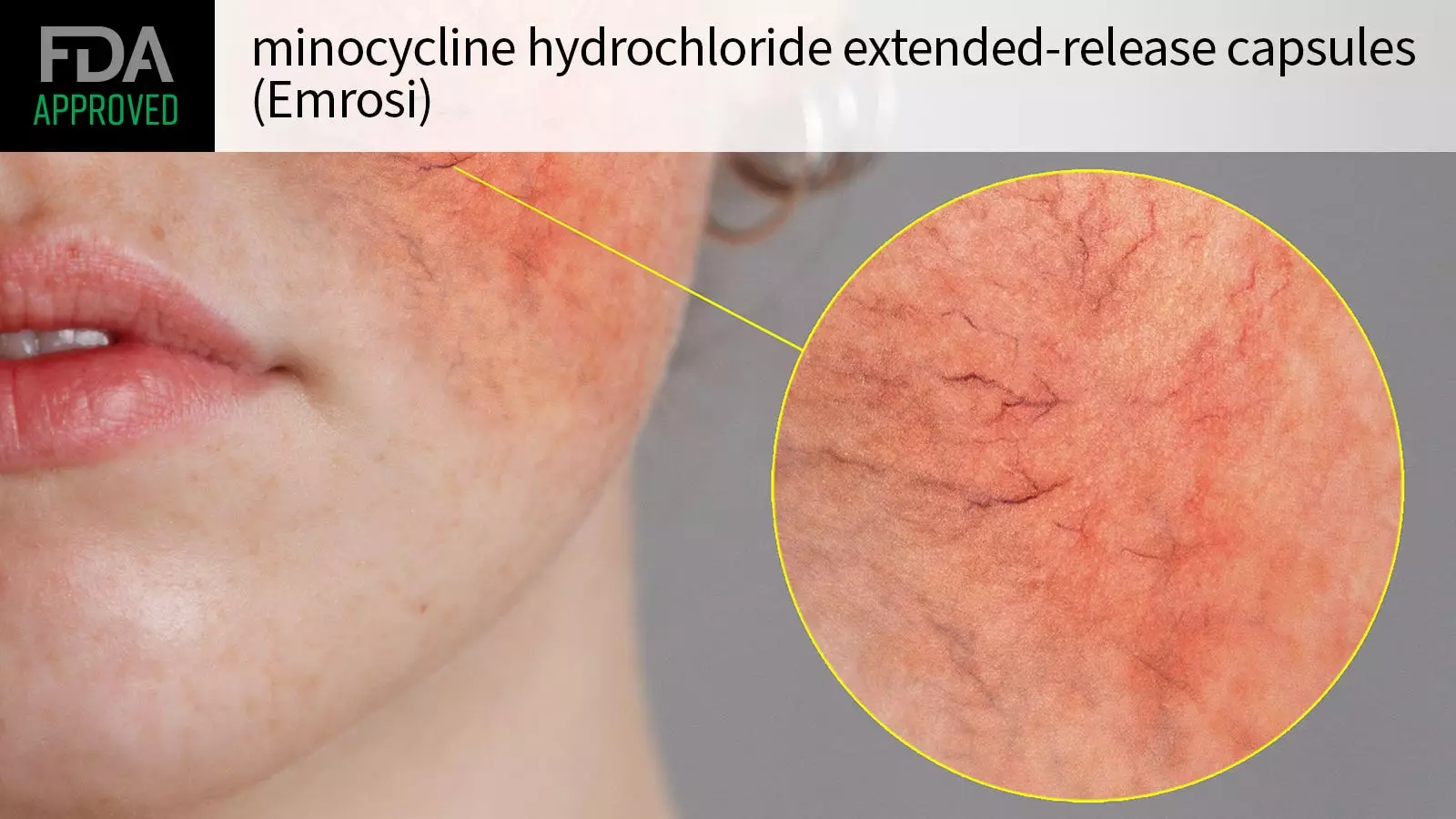In a significant advancement for dermatology, the U.S. FDA has recently granted approval for minocycline hydrochloride extended-release capsules, marketed under the brand name Emrosi, specifically aimed at treating inflammatory lesions associated with rosacea in adults. This announcement, made by Journey Medical, highlights the new therapeutic options available for a condition that affects millions of people worldwide.
The approval process was bolstered by results from two robust multicenter phase III clinical trials—MVOR-1 and MVOR-2. These studies involved 653 adult participants diagnosed with papulopustular rosacea, a subtype of rosacea characterized by red, swollen bumps resembling acne. Participants were evenly divided into three groups: one receiving a daily dose of 40 mg of minocycline hydrochloride, another receiving the traditional treatment with doxycycline, and a control group administered a placebo over a period spanning 16 weeks.
Patients initially displayed a considerable inflammatory burden, with an average of 25 lesions and an Investigator’s Global Assessment (IGA) score indicating moderate to severe disease. By the end of the 16-week regimen, the effectiveness of minocycline hydrochloride was evident; a higher percentage of patients achieved treatment success—defined as an IGA score of 0-1—when compared to both doxycycline and placebo groups. Specifically, MVOR-1 reported success rates of 65% for minocycline versus 46% and 31% for doxycycline and placebo, respectively. Similar trends were observed in MVOR-2, reinforcing the drug’s efficacy.
Despite these promising results, the prescribing information cautions against potential side effects, the most common being dyspepsia, which occurred in 2% of participants. Moreover, careful attention must be paid to the contraindications listed for minocycline. Patients with a known hypersensitivity to tetracyclines are advised against using the drug, as it may trigger severe adverse reactions, including anaphylaxis and serious skin conditions.
The FDA has also emphasized the risks associated with prolonged use of antibiotics, notably the rise of drug-resistant bacteria. This concern necessitates that minocycline hydrochloride be judiciously prescribed, strictly adhering to indicated uses for rosacea and no other off-label purposes.
Broader Implications for Patients and Availability
The approval of minocycline hydrochloride represents a significant milestone for those suffering from rosacea, providing a much-needed alternative to existing treatments. Beyond its primary benefits, patients should remain informed about possible serious side effects that could impact their overall health, especially pregnant women and children, due to the potential for long-lasting dental and health implications.
Journey Medical anticipates that Emrosi will be commercially available in the first half of 2025, a timeline awaited by many seeking effective management of this often uncomfortable and stigmatizing skin condition. As physicians begin to incorporate this new option into their treatment protocols, it is crucial that they continue the conversation about the importance of responsible antibiotic use to minimize the risk of resistance while maximizing therapeutic benefits.
The introduction of minocycline hydrochloride is poised to reshape the landscape of rosacea treatment, but medical professionals and patients alike must navigate its complexities and potential risks with diligence and care.

Leave a Reply